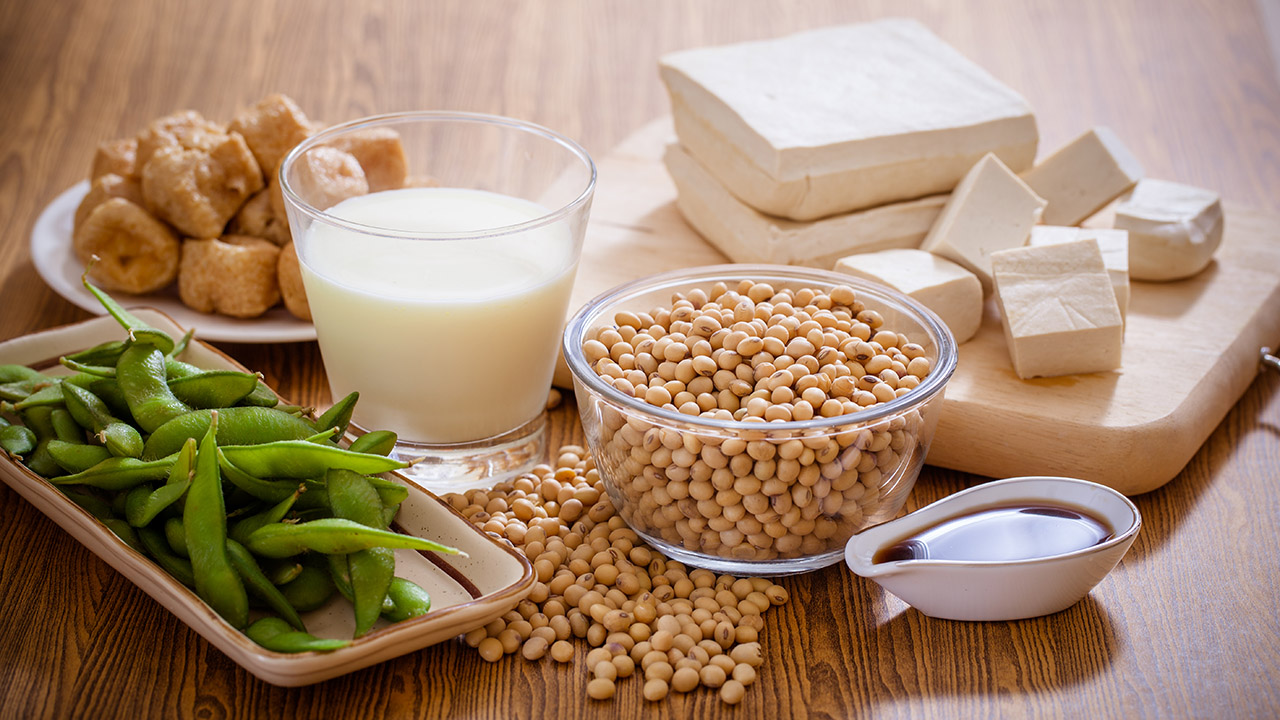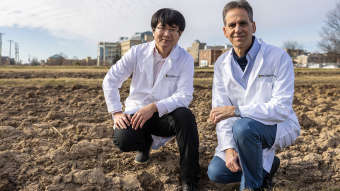Oct. 15, 2021
More nutritious, shelf-stable soy-based products could be coming to a grocery store near you within the next five years — good news for health-conscious consumers and Missouri farmers alike. University of Missouri researcher Kiruba Krishnaswamy will use funding from the Missouri Soybean Merchandising Council to come up with a process to develop tastier powdered milk, yogurt and tofu.
Krishnaswamy, an assistant professor in biomedical, biological and chemical engineering with a joint appointment in the Division of Food, Nutrition and Exercise Sciences in the College of Agriculture, Food and Natural Resources, will work with a team to optimize food processing technologies using the SOYLEIC® High Oleic Soybean — a plant pioneered in CAFNR. She also hopes to find new ways to use okara — a traditionally wasted part of soybean processing. Ultimately, the work could create more demand for soy production in Missouri, increasing agricultural income and the state’s economy while improving the health of its citizens.
“The SOYLEIC® variety is high in oleic acid, which is good for health,” Krishnaswamy said. “And younger generations are more interested in plant-based foods. One problem, though, is that you don’t get Vitamin B12, which mainly comes from animal sources. We’re fortifying these soy products with B12 so consumers can get the micronutrients they need.”
In addition to making the products taste good, Krishnaswamy and team will also make them shelf-stable. This benefits families, so they don’t have to worry about milk going bad or losing nutritional value if it’s not consumed quickly. It also allows food banks that have complex delivery processes to offer healthier options. And shelf-stable nutritious foods are ideal in emergencies situations such as natural disasters and global pandemics. Krishnaswamy pointed to disrupted supply chains during COVID-19 that resulted in thousands of gallons of milk going to waste.
“During such times of emergencies, micronutrient fortified powders and foods like this can be easily reconstituted,” she said, noting the new products are designed to last up to six months to a year.




